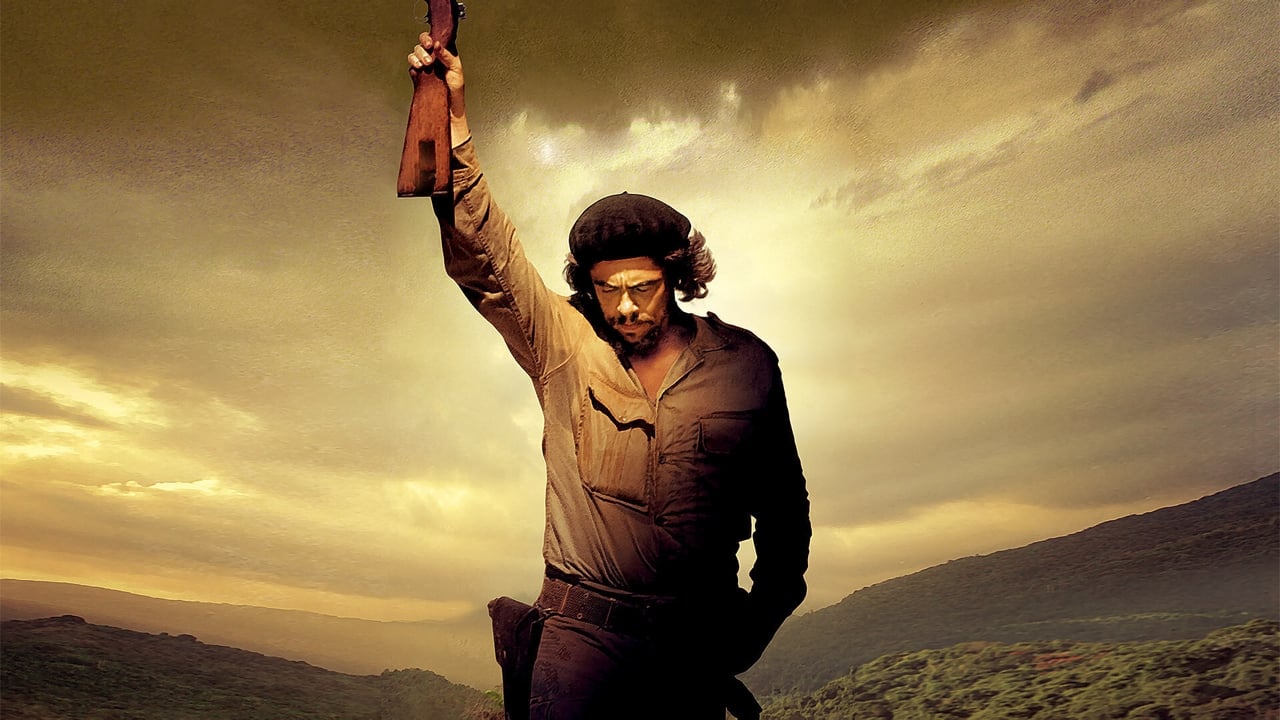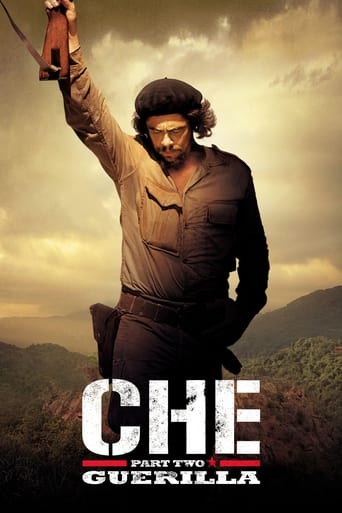

Purely Joyful Movie!
... View MoreBrilliant and touching
... View MoreIt's hard to see any effort in the film. There's no comedy to speak of, no real drama and, worst of all.
... View MoreStory: It's very simple but honestly that is fine.
... View MoreI'm totally critical of all kinds of ideologies and 100% against personality cult. I have my own opinions and know what is good and bad in both capitalism and communism. One may dislike or even hate Che Guevara, who also executed people, but he'll have to acknowledge that he was very courageous and sincerely motivated to help poor people get a better life. This can't be said about people like Lenin, of course.I found Part Two better than Part One, with more tension, but probably because when you know a story is not going to have a happy ending, then it's even more interesting. The movie as a whole is "only" good, but with del Toro's very convincing performance, it comes close to being excellent.
... View MoreJust as was the case with the first movie, this is a well made one but it's also a far from involving or interesting one. Seriously, if you want to learn about Che Guevara you are better off simply reading a book or watch a documentary about him because this movie will learn you very little.It's quite annoying how this movie doesn't really bother to explain anything or go deeper into detail with certain things. Even the character of Che remains a kind of flat one and you just don't know what is going on in his head or what his exact motivations and true beliefs were. He is mostly being a very unpredictable character that you just can't ever really care about.To add to the confusion of it all, even more characters get introduced this time. There are dozens and dozens of speaking roles in this movie and each of those characters have a name as well. Why should we care about any of them when we can't even tell who is who anymore after a while. There are simply too many characters and the movie should had focused more on just an handful of them. It would had made the movie far more involving to watch and easier to follow.Even though you can't really hate this movie, it's also not really a movie that is very pleasant to watch due to its overall approach. It's a hard movie to get through and you really have to sit down to watch it, without any distractions. Yet, strange as it might sound, I liked this movie a tad bit better than the first one. The overall flow was more pleasant and more was happening in this movie, although it still remains a sort of slow- and at times dragging one. The movie didn't seemed as messy and random with some of its sequences this time, almost as if they had more time to put this movie together in the editing room than was the case with the first part.With the first movie it still seemed quite pointless that they spend so many millions of dollars on it. I mean, the movie is about just a bunch of guys going to the jungle. With this movie the money seems better spend. It has more different settings in it and also far more action. But don't think that this means this movie is an action movie please.It remains a really well made film but don't watch this expecting to be grabbed- or learn anything from it. A good movie but without a real heart or message.7/10http://bobafett1138.blogspot.com/
... View MoreI've read up a little bit on Che before watching this film and you wanna know something, he was a real hero for the people because he only wanted to see equality for everyone and that he hated what the oppressive forces were doing to his people as well as all other Latin Americans in general! Now, I don't know about others, but to me he did the right thing by wanting socialism so that everyone had to pay their fair share. However, the powerful elite obviously weren't going to go for that. So, rather than understanding what Che Guevera wanted, they were forced to kill him in attempting to suppress the revolution. It didn't work since there were too many of his other followers who only picked up where he left off. A good example of this was when Castro continued his leadership in Cuba. As far as I'm concerned and as Che said it himself right before he died: "If you kill me, that's fine. But you're only killing a man, you'll NEVER kill the cause!" I couldn't have said it any better myself.But ... ANYWAYS.... that's why I give this film a 7 out of 10.
... View MoreSTAR RATING: ***** Saturday Night **** Friday Night *** Friday Morning ** Sunday Night * Monday Morning This second instalment of the Che films moves the story forward to the late 60s, where the man has now moved his resistance fighters into the hills of South America, surviving without enough food and water and with tensions mounting between the group. Everything comes to a head when he crosses the border into Bolivia and the government forces step up their campaign to bring him down.Without the flitting between time and places of the last film, Soderbergh's second instalment focuses solely on the action in the hills, and manages to be an even duller experience. And more pretentiously, the score has been drowned out, giving the second instalment more of an unwelcome air of artsieness that proves just as alienating. There's just an unshakeable air of boredom to the film that never lets up. You can't fault Soderbergh's ambition or Del Toro's drive in the lead role, it's just a shame that somewhere in the production things managed to take such a disappointing turn. **
... View More